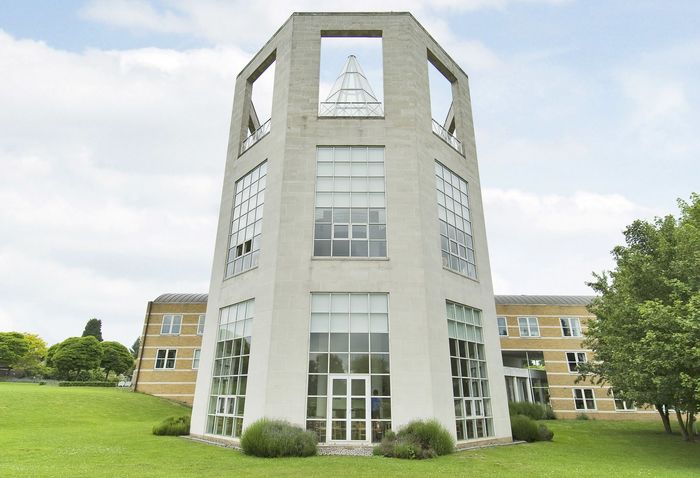Imposter syndrome, solitude, and not reading: John Berryman’s Cambridge
Emily Cushion tells the story of the poet John Berryman’s turbulent time in Cambridge

After achieving his undergraduate degree at New York’s Columbia College in 1936, a young John Berryman received the Kellett Fellowship that funded two further years of study at Cambridge’s Clare College. Comprehending the weight of this new academic journey, Berryman poeticised his concerns in his collection Love & Fame:
’the disgrace if I couldn’t take it up
would be general: only embarrassing
but very that: a plague.’ (‘Crisis’)
Thinking of academic failure as a disease, Berryman threw himself into his poetic studies, though prose admittedly took a backseat – he pointedly read 2 ½ novels across his first term at Cambridge. Berryman, of course, studied Chaucer, Shakespeare, and Joyce – it’s nice to know that the initial Cambridge English course has stood the test of time – but was struck by the treatment of American poetry, lamenting that ‘These men don’t know our poets’ (‘Friendless’). This English unwillingness to consider American poetry as equally intellectually important as our own led Berryman to develop his own doubts; after discussing it with his supervisor, he concluded that ‘America lacked a real verse tradition’.
“Distaste for Eliot and his poetry sprung at least partially from Berryman’s own insecurity – ‘imposter syndrome’, as we would now say.”
Following his reservations about the state of American poetry, it was Berryman himself who, in part, catalysed the shift from the impersonal modernist verse of T.S. Eliot and Ezra Pound to the confessional poetry that took hold from the late 1950s. Berryman became personally involved with Eliot after attending his talk on ‘The Idiom of Modern Verse’ in Cambridge on 13th November 1936, which he openly regarded as unimpressive. Distaste for Eliot and his poetry sprung at least partially from Berryman’s own insecurity – ‘imposter syndrome’, as we would now say. In poem ‘Monkhood’, he writes,
’I refused to meet Eliot, on two occasions,
I knew I wasn’t with it yet
& would not meet my superiors. Screw them.’
It took Berryman months to settle into Cambridge. In his first term, he describes feeling profound loneliness, seeking solace in poetry – ‘The only souls I feel toward are Henry Vaughan & Wordsworth.’ (‘Monkhood’). The titles of Berryman’s Cambridge poems, ‘Crisis’, ‘Friendless’, ‘The Other Cambridge’ are symptomatic of his initial disillusionment. He certainly felt othered by Cambridge and its students at first, but instead of admitting defeat, he channelled this discomfort into both his studies and writing: ‘I don’t do a damned thing but read & write.’ (‘Friendless’). Berryman quietly yet fervently defied expectations, demonstrating the importance of harbouring patience and meticulousness in one’s work. Indeed, he did not achieve poetic success until much later in his life: Dream Songs, often considered as his literary magnum opus, would not be published until 1964. Following this, however, the work earned him several literary accolades including the Pulitzer Prize and the National Book Award.
“It took Berryman months to settle into Cambridge. In his first term, he describes feeling profound loneliness, seeking solace in poetry.”
Though it took him several decades, Berryman’s career would come to rival those of his contemporaries in confessional poetry – Robert Lowell, Anne Sexton, and Sylvia Plath. In particular, his career mirrored Plath’s; she was a fellow American following the trajectory of undergraduate, to Cambridge scholar, to Pulitzer Prize winner. Berryman’s Cambridge experience in the 1930s was worlds away from Plath’s in the 1950s – he studied in a completely different poetic and historical climate. Nevertheless, both seem to have equal stakes in the foundations of confessional poetry, with Cambridge being the common denominator of their poetic upbringings.
Cambridge, then, nurtures the poet. The list of successful alumni is almost unfathomable, including Lord Byron, John Milton, William Wordsworth, Christopher Marlowe, Edmund Spenser, and countless more. In the mid 20th century, however, it was confessional poetry that began to blossom in Cambridge – an entirely new style which reflected the turbulence of the time. Both Berryman and Plath used the mode of poetry to reckon with their feelings on the Holocaust and the Cold War. The changing social and political climate required a subsequent change in creative outlet.
Berryman came to Cambridge in 1936 with a burning desire to make change: ‘I haven’t quite got the hang of the stuff yet / but I swamp with possibility.’ (‘Anyway’). It was arguably this initial level of ambition that sparked the career of the man who would come to be one of the most important American poets of the 20th century.
 News / Candidates clash over Chancellorship25 April 2025
News / Candidates clash over Chancellorship25 April 2025 News / Cambridge professor paid over $1 million for FBI intel since 199125 April 2025
News / Cambridge professor paid over $1 million for FBI intel since 199125 April 2025 Interviews / Dr Ally Louks on going viral for all the wrong reasons25 April 2025
Interviews / Dr Ally Louks on going viral for all the wrong reasons25 April 2025 Music / The pipes are calling: the life of a Cambridge Organ Scholar25 April 2025
Music / The pipes are calling: the life of a Cambridge Organ Scholar25 April 2025 Comment / Cambridge students are too opinionated 21 April 2025
Comment / Cambridge students are too opinionated 21 April 2025






